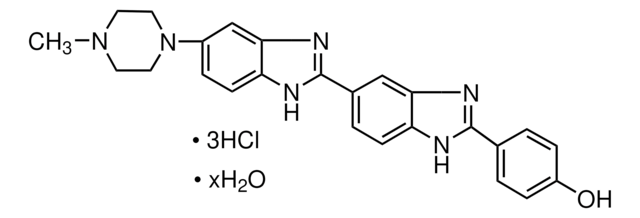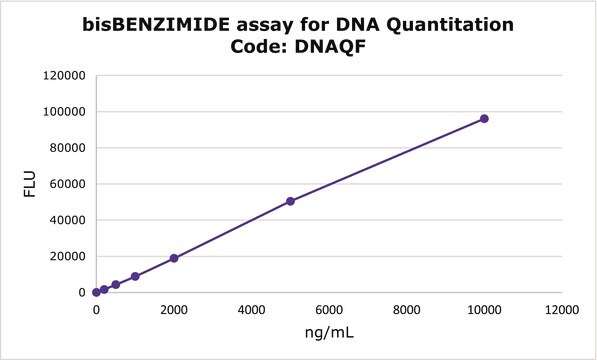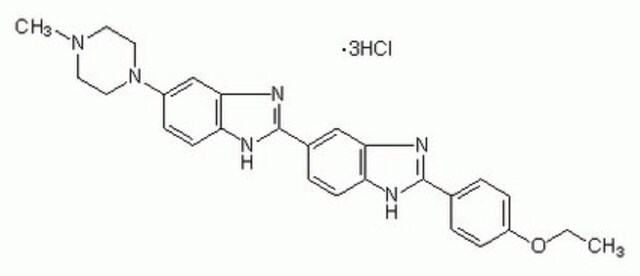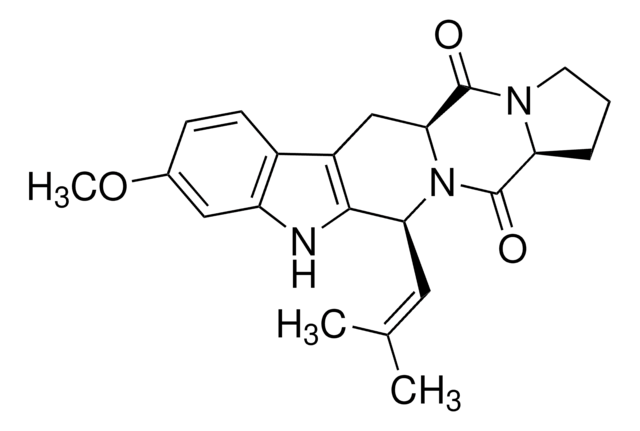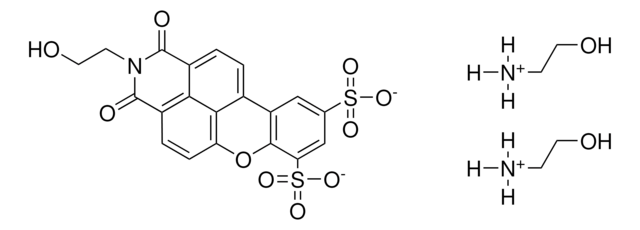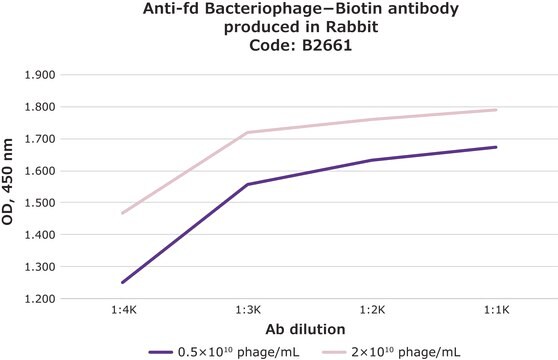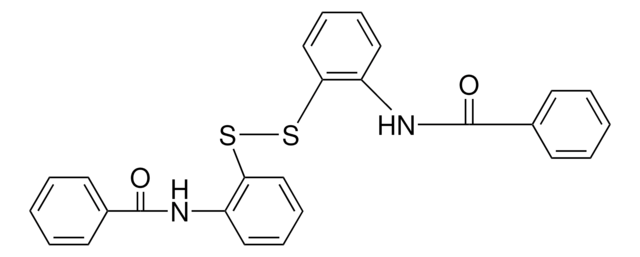B2261
bisBenzimide H 33342 trihydrochloride
≥98% purity (HPLC and TLC), powder
Synonyme(s) :
2′-(4-Ethoxyphenyl)-5-(4-methyl-1-piperazinyl)-2,5′-bi-1H-benzimidazole trihydrochloride, HOE 33342, Hoechst 33342, bisBenzimide
About This Item
Produits recommandés
product name
bisBenzimide H 33342 trihydrochloride, ≥98% (HPLC and TLC)
Niveau de qualité
Pureté
≥98% (HPLC and TLC)
Forme
powder
Couleur
yellow
pH
1.7 (20 °C)
Solubilité
H2O: 20 mg/mL
phosphate buffer: precipitates
Adéquation
suitable for fluorescence
Application(s)
diagnostic assay manufacturing
hematology
histology
Température de stockage
−20°C
Chaîne SMILES
Cl[H].Cl[H].Cl[H].CCOc1ccc(cc1)C2=NCc3cc(ccc3N2)C4=NCc5cc(ccc5N4)N6CCN(C)CC6
InChI
1S/C29H32N6O.3ClH/c1-3-36-25-8-4-20(5-9-25)28-30-18-22-16-21(6-10-26(22)32-28)29-31-19-23-17-24(7-11-27(23)33-29)35-14-12-34(2)13-15-35;;;/h4-11,16-17H,3,12-15,18-19H2,1-2H3,(H,30,32)(H,31,33);3*1H
Clé InChI
FYEVKHPLBHLWHK-UHFFFAOYSA-N
Vous recherchez des produits similaires ? Visite Guide de comparaison des produits
Application
Excitation max. = 346 nm
Emission max. = 460 nm
Actions biochimiques/physiologiques
Propriétés physiques
Free dye: Excitation maximum = 340 nm, Emission maximum = 510 nm (5 mM HEPES, 10 mM NaCl, pH 7.0) DNA complex: Excitation maximum = 355 nm, Emission maximum = 465 nm (5 mM HEPES, 10 mM NaCl, pH 7.0)
Notes préparatoires
Aqueous solutions are stable for 1 month if kept in the dark at 2-8 °C.
Produit(s) apparenté(s)
Code de la classe de stockage
11 - Combustible Solids
Classe de danger pour l'eau (WGK)
WGK 3
Point d'éclair (°F)
Not applicable
Point d'éclair (°C)
Not applicable
Faites votre choix parmi les versions les plus récentes :
Déjà en possession de ce produit ?
Retrouvez la documentation relative aux produits que vous avez récemment achetés dans la Bibliothèque de documents.
Les clients ont également consulté
Articles
Regulation of the cell cycle involves processes crucial to the survival of a cell, including the detection and repair of genetic damage as well as the prevention of uncontrolled cell division associated with cancer. The cell cycle is a four-stage process in which the cell 1) increases in size (G1-stage), 2) copies its DNA (synthesis, S-stage), 3) prepares to divide (G2-stage), and 4) divides (mitosis, M-stage). Due to their anionic nature, nucleoside triphosphates (NTPs), the building blocks of both RNA and DNA, do not permeate cell membranes.
We presents an article on ABC Transporters and Cancer Drug Resistance
Notre équipe de scientifiques dispose d'une expérience dans tous les secteurs de la recherche, notamment en sciences de la vie, science des matériaux, synthèse chimique, chromatographie, analyse et dans de nombreux autres domaines..
Contacter notre Service technique



